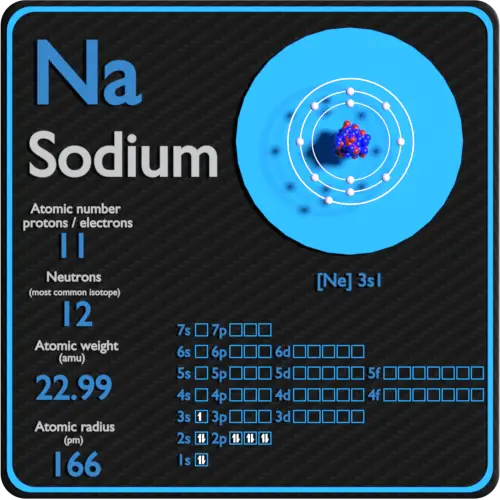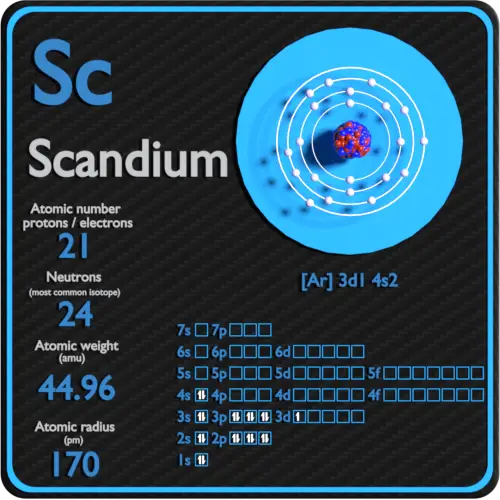

Each electron is influenced by the electric fields produced by the positive nuclear charge and the other (Z – 1) negative electrons in the atom. Therefore, the number of electrons in neutral atom of Germanium is 32. The number of electrons in an electrically-neutral atom is the same as the number of protons in the nucleus. Germanium-76 is composed of 32 protons, 44 neutrons, and 32 electrons. Germanium-74 is composed of 32 protons, 42 neutrons, and 32 electrons. Germanium-73 is composed of 32 protons, 41 neutrons, and 32 electrons. Germanium-72 is composed of 32 protons, 40 neutrons, and 32 electrons. Germanium-70 is composed of 32 protons, 38 neutrons, and 32 electrons. 74Ge is the most common isotope, having a natural abundance of approximately 36%. Of these, 76Ge is very slightly radioactive, decaying by double beta decay with a half-life of 1.78×10 21 years.

Germanium occurs in 5 natural isotopes: 70Ge, 72Ge, 73Ge, 74Ge, and 76Ge. Mass numbers of typical isotopes of Germanium are 70 72 73 74. Isotopes are nuclides that have the same atomic number and are therefore the same element, but differ in the number of neutrons. The difference between the neutron number and the atomic number is known as the neutron excess: D = N – Z = A – 2Z.įor stable elements, there is usually a variety of stable isotopes. Neutron number plus atomic number equals atomic mass number: N+Z=A. The total number of neutrons in the nucleus of an atom is called the neutron number of the atom and is given the symbol N. The total electrical charge of the nucleus is therefore +Ze, where e (elementary charge) equals to 1,602 x 10 -19 coulombs.

Total number of protons in the nucleus is called the atomic number of the atom and is given the symbol Z. Germanium is a chemical element with atomic number 32 which means there are 32 protons in its nucleus.


 0 kommentar(er)
0 kommentar(er)
